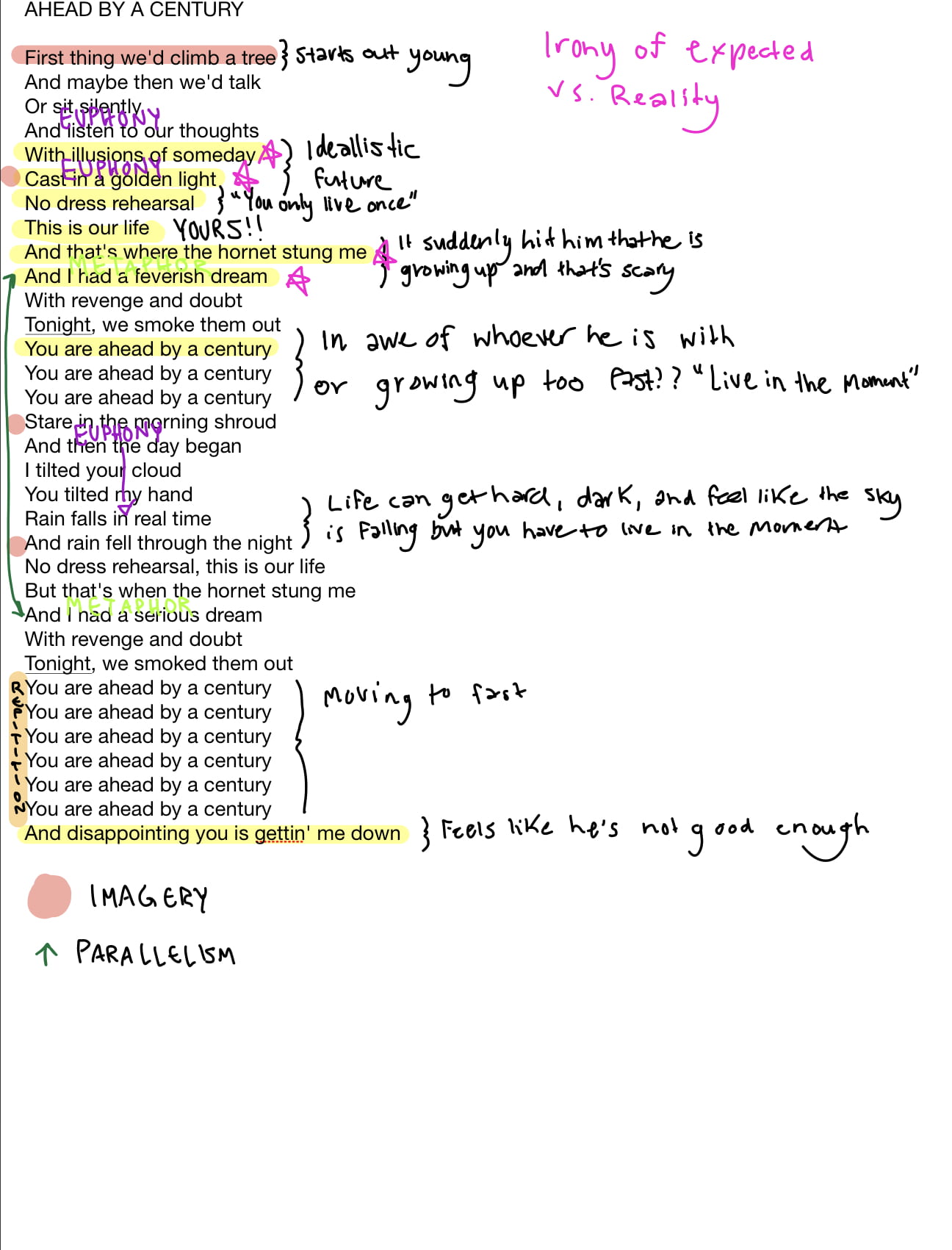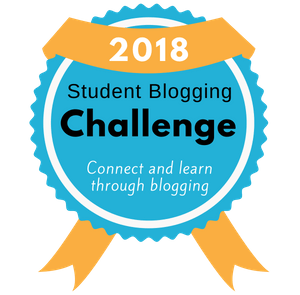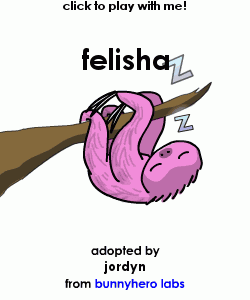Listen to this playlist for some nice ambience while you read! Every person in my class chose one song to be on it.
We have just finished the best. Project. Ever. Seriously. After all of my years in PLP, after all of these blog posts and project reflections, this one is officially, at least, one of my top three. You are probably wondering what on earth could possibly have made this project so magnificent. Well, that is exactly what I am here to do; explain to you it’s magnificence and why I loved it so much personally. Hi I am Jordyn Eyton and, as always, I will be your host today here on my learning portfolio, My Dog Ate My Blog. Something you may not know about me is that I love music. A whole lot. I have been making monthly playlists where I add songs that I like, songs that remind me of a time, or new songs that other people introduce to me since June of 2020.

Here is an example! This is my playlist that I made in September of 2020. I add a photo that reminds me of each month and also a quote or funny memory in the description. Feel free to click the photo and check it out.
The reason I am showing you this is to show just how important music is to me, how large a part of my life it is. Though it is such a significant part of my worldview, I have never though of it as something that I could connect to. I had never thought of my favourite songs as snapshots in time, philosophies that I subscribe to, or ways to express feelings or values. But that is what this unit has been all about and what we have been analyzing our songs of choice for. As always, this unit was kick started with a good old driving question which you would know if you were a long time My Dog Ate My Blogger:
“How might we use music to represent ourselves and text?”
To answer this question, we were challenged with creating a playlist of 5 songs that represent us and our life, hence the name “Playlist Of My Life.” We gathered our knowledge from work in analyzing music and poetry, annotating lyrics, and discussing different literary devices to do this successfully. Through out this post, I will present to you my analyses for my songs as well as some of my conclusions that I have come to and parts of the project that I really enjoyed. So, without further adieu, let’s get this post started!!
HIGHLIGHTS
Poetry Jigsaw
One of the activities that we did for this unit (this very very short unit that we completed in three weeks!) was something called a poetry jigsaw. No, it is not actually a puzzle although that would have been pretty fun. There were eight poems spread around the classroom that, in groups, we analyzed and answered questions about, poems by Robert Frost, Edgar Allan Poe, and Joni Mitchell. These were, personally, my three favourite.
- Stopping By Woods on a Snowy Evening by Robert Frost
- Annabel Lee by Edgar Allan Poe
- Both Sides Now by Joni Mitchell
Click on the images above to read them, I recommend 🙂 They were not only my favourite because they are beautiful works of art but because they are ones that I learned the most from through analysis. “Stopping by Woods on A Snowy Evening” by Robert Frost was a poem that, at first, was very difficult to understand the meaning of. I was very close to simply disregarding it because it was so basic but I quickly found the beauty within it when I found that it hid a deeper truth: humans relationship with nature and the land. “Annabel Lee” by Edgar Alan Poe is the type of poem that breaks your heart. This poem really helped me understand what mood is and host hat is created by different aspects of the poem and literary devices. One thing that I found that helped me identify mood in this unit is the emotion wheel, something I had never used before:

The third and final poem that I found really pushed my critical thinking to the next level was “Both Sides Now” by Joni Mitchell. It is a poem that artfully describes an idea through parallelism which isn’t something I have had much experience analyzing. The poem contained a lot of euphony and connotation.
Annotations
The second part to my knowledge building for this unit came in the form of annotating song lyrics. This may have been one of my favourite parts of this unit. I really found that the star ate guy I developed as I annotated helped me comprehend the songs on a deeper level and find literary devices, it forced me to ask important questions that are a large part of analysis and critique, and it showed me how I connect different songs too! I was able to use my knowledge from one song to look for similar themes in another.
Playlist Of My Life
Based on the knowledge that I gained from activities like the poetry jigsaw, I was able to successfully analyze and connect myself to a couple important song in my life. The songs that you see above are ones that particularly resonate with me. Maybe they mirror an important memory, invoke a strong feeling, or have a philosophy that I subscribe to. Below you will find three of my most important written analysis, I hope you enjoy
“It’s a little bit funny, this feeling inside” (0:08-0:16), sings Elton John in “Your Song”. Lyrics such as this throughout the song create a very unequivocal tone; the artist is describing what it feels like to be in love. Throughout the entirety of the song, this tone is upheld through the genius utilization of both imagery and connotation. These poetic devices invoke familiar feelings and paint familiar settings that are relatable and comforting as a listener. John sings, “I sat on the roof and kicked off the moss” (1:53-2:00) and we are invited to join him and take part in his song writing process through his use of imagery. This line of verse invokes a feeling of frustration that many star crossed lovers are familiar with; you simply can’t articulate how much you love someone. You feel as though you are never doing enough or that they deserve more as Elton John describes further in stanza two. “I don’t have much money, but boy if I did I’d buy a big house where we both could live”(0:24-0:37), is a hyperbole that wholly expresses what one would do for love. The stanza continues on to suggest being a sculptor without the talent and the extravagant act of making “potions in a travelling show”(0:48-0:54); Elton John uses these lyrics and these fantastical, fictional examples as a measurement of how abundant his love is in contrast with it’s simplicity and innocence. Though we can imply that this song encompasses the feeling of love and attraction, I believe that it also describes a more simple definition of love. This could be the love of a friend, of a family member, of someone who inspires you, or even someone who has recently entered your life. I really appreciate how the artist does not explicitly say “I Iove you” at any point through out the song as it furthers this aspect of the tone and denotes a different idea than the foundational one associated with “love”; it allows this song to be enjoyed by all listeners. My dad always told me that Your Song was my song and that it was written about me. I truly believed that it was, imagining that my dad assisted Elton John in writing the song for me, including lyrics like “This is your song”(1:16-1:18) and “Yours are the sweetest eyes I’ve ever seen”(2:47-2:53) upon my dad’s request. Even once I realized that my dad and Elton John hadn’t collaborated and masterfully composed this song, it remained extremely special to me. Your Song by Elton John symbolizes family as I listen to the artfully chosen, simple (almost colloquial) verse and comfortable, familiar sound of the piano. It is reminiscent of winter nights by the fire, road trips to Whistler, and our sporadic family karaoke concerts; it is reminiscent of my growing up. The anthem of my childhood also represents a time that I can no longer remember, a time that only my dad can remember. This was the lullaby that my parents sang me to sleep to as a newborn, it was the first song that I attempted to sing at one. In a time when everything was changing, credited to my birth, it was the song that consoled my Dads’ concerns about being a father. The lyrics that comforted my dad, “How wonderful life is while you’re in the world”(1:35-1:43), have now become the lyrics that comfort me, reinventing my initial understanding of the song.
Presentation
Finally, we had to present our playlist to the world! Ok, maybe not to the entire world. I presented my choice of three songs (they are the same three that you saw above), first, to Emily and Noah then I presented to Matthew, Gabe, and Liam. I used photos to describe the songs to connection to me which you will see in the slideshow below.
I used these photos as a tool to engage my audience so they didn’t just have to stare at me the whole time but also to bring he presentation back to me. There was a lot of analysis involved in this project but, ultimately, it is the Playlist of MY Life so these photos are evidence of that.
Lately, I have become more and more nervous to present to groups of people so based on the fact that I had to talk about my feelings and a deep analysis, I was nervous. My first presentation was a little bit rocky for sure. I found it difficult to guide such a casual presentation. But I ended up utilizing my annotations that you saw earlier! I printed them out for my group members to see and they actually helped keep the conversation going and provoked questions which I was very proud of. We eventually started making it much more conversational rather than a full-on presentation which helped me present and made this time a lot more useful as I believe we really began to understand what music means to each of us, how it influences us.
Conclusion
There are really two questions I am asking myself after writing this. 1) How does music influence us? 2) How do I see myself represented in music? These are big questions but the reason that I was able to answer them is because I was so passionate about the work I was doing. I thoroughly enjoyed this work so I dug deep and extended my learning farther than I though I could in the span of 3 weeks. So let’s talk about these questions.
1) How does music influence us?
In PLP 11 last year we did a little bit of work with music and defiantly focused on a similar idea so I was able to bring this knowledge together. The most vivid example I remember is listening to “These Boots Are Made For Walking” and connecting it the Vietnam war. This was a song that the troops loved, one they could relate to in a time of struggle and sadness. I also researched “Wheat Kings” by the Tragically Hip and came to this conclusion: Music is written in a way for people to listen to. It is written for people to want to listen to again and again. By including important messages and philosophies in the themes, mood, and tone of these songs, the artist can influence listeners, a lot of the time, with out the listener even knowing.
2) How do I see myself represented in music?
This is the reason why “Playlist of my Life” was one of my favourite projects by far. Each of the songs that I chose are truly me and you can see that sine through in my written analysis. This project forced me to think about the music I listen to everyday in a different way. Yes I had analyzed a song for literary devices for and found the message it was trying to portray but I had never actively connected this form of text to myself and my life. Overall, I am very proud of the work I completed and glad that I have this knowledge as there is music all around us! Thank you for taking the time to read my post here on My Dog Ate My Blog, I hope you enjoyed and see you next time!
– Jordyn














Leave a Reply